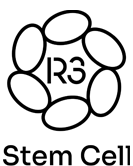Tijuana Mexico Allogeneic (Donor)
Natural Killer Cell Therapy
Allogeneic Natural Killer Cell Therapy with R3 Stem Cell
Which cancer patients are candidates for allogeneic Natural Killer Cell Therapy?
It should be noted that NK Cell Therapy is a fantastic ADJUVANT treatment for patients with several types of cancer. It is not meant to be a replacement cancer therapy, rather, excellent for being administered either before or after traditional therapies.
- Patients with Solid Tumors: Lung cancer, breast cancer, prostate cancer, etc.
- Patients with Leukemias and Lymphomas: Hematological cancers.
- According to Their Stage of Diagnosis:
- Early Diagnosis: Patients in early stages can benefit from a combination of therapies, as this stage offers the possibility of integrating both conventional treatments and cellular immunotherapy. The use of NK cell therapy in conjunction with chemotherapy, radiotherapy, or surgery can enhance the patient’s response and improve therapeutic outcomes.
- Advanced or Recurrent Cancer: NK cell therapy may be relevant for advanced or recurrent disease, though the probability of complete tumor elimination is lower in these cases. The patient’s conditions and therapeutic expectations should be evaluated to determine if they are suitable candidates for cellular immunotherapy.
Of note, ALL patients must have a complete medical history and the necessary baseline examinations before proceeding with treatment.

Ground transportation from San Diego to the clinic and back are included, along with the hotel accommodations, refreshments, and massages!
Schedule Now+1 (844) 4NK-CELL
More FAQs
Does NK Cell Therapy work for other conditions besides cancer?
NK cells have shown promise not only in cancer treatment but also in the control and elimination of various pathogens. Their ability to recognize and destroy infected or altered cells makes them valuable in combating several viral diseases.
Notable viral diseases where NK Cell Therapy may help considerably:
- Herpes Zoster
- Human Immunodeficiency Virus (HIV)
- Hepatitis C
- Epstein Barr Virus
How does NK Cell Therapy work?
NK cells have the ability to recognize cells with abnormally low levels or absence of Major Histocompatibility Complex class I (MHC I) molecules. Normal, healthy cells present MHC I on their surface, which normally protects them from NK cell action. When cells present low levels of MHC I, as occurs in many tumor cells or cells infected by viruses, NK cells can recognize and attack these abnormal cells.
Due to this recognition mechanism, NK cells are designed to target and eliminate tumor or infected cells without damaging normal cells in the body. The absence of MHC I on abnormal cells serves as a signal for NK cells to initiate their cytotoxic action. This process ensures that NK cell therapy focuses on problematic cells and not on healthy ones.
The specificity of NK cells for low MHC I cells minimizes the risk of adverse effects on normal cells, enhancing the safety of allogeneic therapies.
Despite NK cells’ intrinsic ability to differentiate between normal and abnormal cells, continuous monitoring during treatment is essential to detect any possible adverse effects and adjust doses or protocols as needed.
As part of the innate immune system, NK Cells do not require prior exposure (unlike B and T lymphocytes). They use 2 main mechanisms to eliminate cells:
Direct mechanism: Release substances that create pores in the target cells’s surface (Granzymes and Perforins)
Indirect mechanism: Send signals through surface molecules that force the target cell into cell death processes (FAS and TRAIL death receptors).
When should NK Cell Therapy be performed as an adjuvant cancer treatment?
Pre-Surgery: NK cells may reduce tumor mass or improve response to subsequent treatment.
Immediately Post-Surgery: NK cell immunotherapy can reduce residual cells or prevent recurrences.
One Week After Chemotherapy: Administration can be done after recovery from chemotherapy but before the disease could progress. It is important to note that chemotherapy could eliminate or significantly affect the effectiveness of NK cells.
What is the NK Cell Treatment protocol at R3?
Currently, R3 offers NK Cell Treatment in Tijuana, Mexico as the 5 Day NK Stay.
The program includes the following regimen:
Day 1: First NK Cell intravenous infusion (100 million NK Cell minimum)
Day 2:
Day 3: 2nd NK Cell intravenous infusion (100 million NK Cell minimum)
Day 4:
Day 5: 3rd NK Cell Intravenous Infusion (100 million NK Cell minimum)
Patients are monitored overnight and may return home on the 6th day.
How well does NK Cell Therapy work for cancer?
Patients with Early or Intermediate Diagnosis:
In these cases, the success rate is significantly higher. Expected outcomes range from a considerable reduction in tumor size to complete elimination.
Patients in Terminal Stage:
The success rate is influenced by the type of tumor and the patient’s overall condition. Expected results are generally more conservative and may include improvement in quality of life and partial reduction of the tumor.
Metastatic tumors tend to be the first to respond to treatment, showing a faster reduction or elimination compared to other types of tumors.
Is it safe? What are the side effects?
The safety of NK cells, especially in allogeneic therapy, is supported by their ability to distinguish between normal and abnormal or infected cells, thanks to their recognition mechanism based on MHC I.
Typical side effects seen have been mild to moderate and include:
- Low grade fever
- Headache
- Chills
- Nausea
- Dizziness, lightheaded
In our experience, these resolve within 24 hours and can be managed with over-the-counter analgesics and antipyretics.
How does R3 evaluate the NK Cells prior to treatment?
The NK Cells are obtained from leukocyte concentrates from health donors, with testing for many diseases such as Brucella, T. cruzi, Hepatitis B/C, HIV and Syphilis.
The cellular evaluation utilizes flow cytometry to ensure:
Purity (NK Cell Population only)
Safety (without T or B lymphocytes that could cause adverse effects)
Quality (Mature CD16+ cells
Efficiency (Cytotoxic CD16+ and active NKG2D+ cells)
